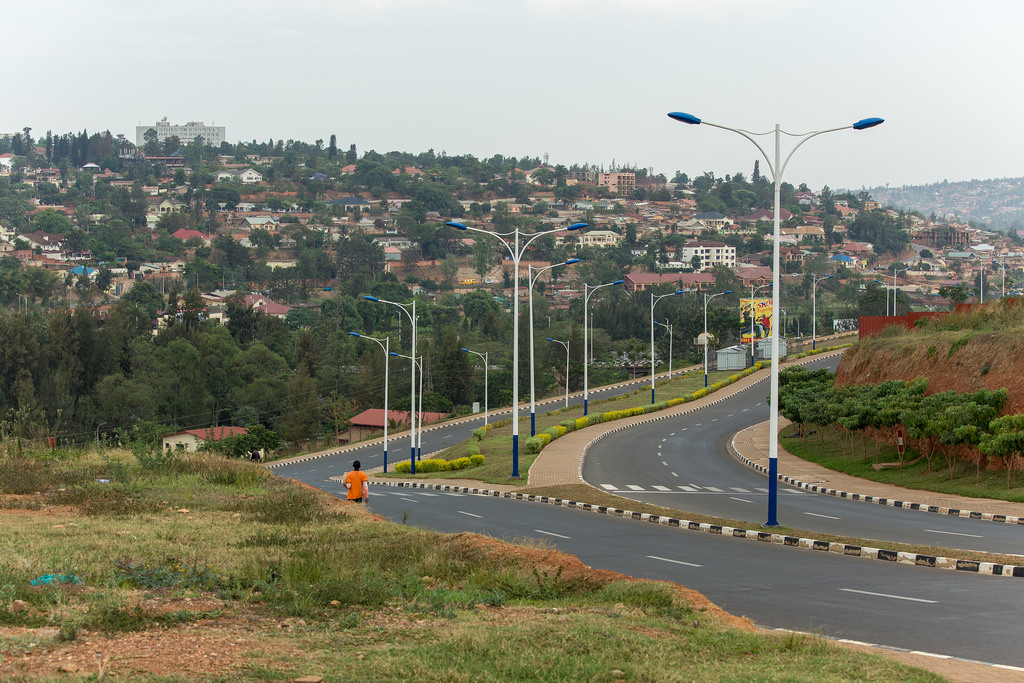Congo commends African Development Bank for Crucial Infrastructure Support
Minister Bouya presented Akin-Olugbade with studies of various road projects funded by the Bank and sought its support for hydroelectric dam studies on the River Congo.

The Congolese government has commended the African Development Bank Group (AfDB) for its critical role in the country's development, particularly in the infrastructure sector. This praise was expressed during a three-day visit by Marie-Laure Akin-Olugbade, AfDB's Vice-President for Regional Development, Integration, and Business Delivery. During her visit, she engaged with several Congolese ministers to discuss political dialogue and bolster support for the Bank’s ongoing operations.
Jean-Jacques Bouya, Congo’s Minister of State for Regional Development, Infrastructure, and Road Maintenance, highlighted the "very positive cooperation with the African Development Bank in the infrastructure field." He emphasized the Bank's pivotal role in funding infrastructure projects across the continent and expressed a desire to expand this partnership further.
The AfDB has made significant contributions to Congo’s infrastructure, including the construction of key roads like the Ketta-Djoum road, part of the Yaoundé-Brazzaville corridor, and the Ndende-Dolisie road linking Congo to Gabon. The Bank has also funded fiber-optic networks connecting Congo with Cameroon and the Central African Republic and is financing studies for a road-rail bridge between the two Congos. Alongside Africa50, the AfDB is spearheading resource mobilization efforts for these projects.
Minister Bouya presented Akin-Olugbade with studies of various road projects funded by the Bank and sought its support for hydroelectric dam studies on the River Congo. The Bank pledged to review the request to help address Congo’s energy deficit, which hinders economic and social development. Bouya also indicated that Congo plans to present some bankable projects at the African Investment Forum, scheduled to take place in Rabat in December 2024.
Olga Ghislaine Ebouka-Babackas, Minister of Planning, Statistics, and Regional Integration, stressed the need for capacity building to optimize development assistance. She emphasized the necessity of the Bank’s support to ensure that management units and sector-specific ministries are proficient in navigating the financial procedures required by international partners.
Minister of Agriculture, Livestock Farming, and Fisheries, Paul Valentin Ngobo, and Akin-Olugbade reviewed a mid-term evaluation of the Integrated Agricultural Value Chains Development Project (PRODIVAC). This initiative aims to strengthen the maize and cassava sectors and enhance seed production capacities. Ngobo also outlined the Agenda for Agricultural Transformation in Congo (ATAC), a government program aimed at advancing the agricultural sector.
Minister for the Environment, Sustainable Development, and the Congo Basin, Alerte Soudan-Nonault, highlighted the challenges in mobilizing climate finance and advocated for Congo’s access to all Bank funding mechanisms. Akin-Olugbade mentioned the Bank’s technical support for the ‘Congo Basin Blue Fund’s readiness project and ongoing efforts to create a carbon exchange and integrate natural resources into GDP calculations for African countries.
Jean-Baptiste Ondaye, Minister of Economy and Finance, acknowledged the Bank’s support in Congo’s reforms program with the International Monetary Fund. At the end of 2023, the Bank provided Congo with $92 million in budget support, helping the country address urgent challenges. Ondaye assured that Congo would meet its commitments to the AfDB and other partners.
Akin-Olugbade outlined the Bank’s new Ten-Year Strategy (2024-2033), focusing on accelerating the “High 5” strategic priorities, aligning with the Sustainable Development Goals (SDGs) and the African Union’s Agenda 2063. This strategy emphasizes gender equality, youth support, and climate change, particularly mobilizing climate funding.
Discussions included the possibility of opening a Country Office in Congo and the government’s preparations to host the Bank Group’s Annual Meetings in 2026. The upcoming resource replenishment meeting of the African Development Fund, the concessional funding window for low-income African countries, was also highlighted.
Akin-Olugbade introduced Olivier Béguy as the new resident country economist, succeeding Sié Antoine-Marie Tioyé, whose mission had ended. The Vice-President’s delegation included the Bank’s Director General for Central Africa, Serge N’Guessan, his deputy Solomane Koné, who is also the Country Manager for Congo, outgoing resident country economist Tioyé, Regional Lead economist Hervé Lohoues, and Principal Country Program Officer, Mohamed Coulibaly.
- READ MORE ON:
- Congo
- African Development Bank
- Marie-Laure Akin-Olugbade










